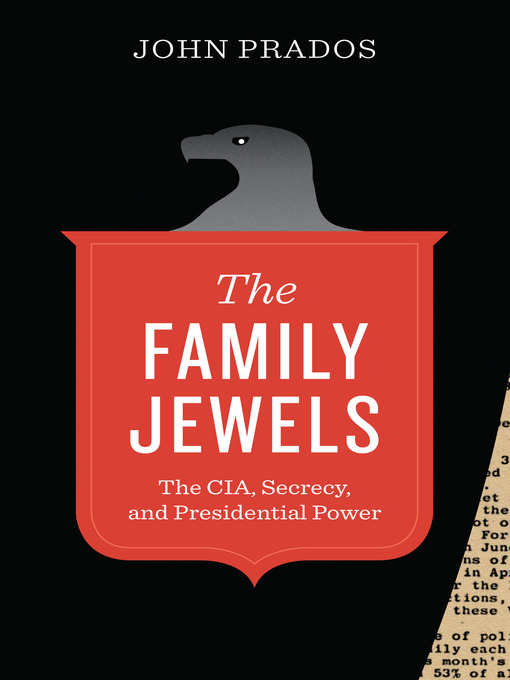
The Family Jewels
The CIA, Secrecy, and Presidential Power
کتاب های مرتبط
- اطلاعات
- نقد و بررسی
- دیدگاه کاربران
نقد و بررسی

July 15, 2013
A scholarly book about the dirty operations of the American government that feels like it has been ripped from the headlines. In his capacity as a senior fellow at the National Security Archive, Prados (Islands of Destiny: The Solomons Campaign and the Eclipse of the Rising Sun, 2012, etc.) regularly sees top-secret documents as they quietly enter the public domain. The book is part of the publisher's Discovering America series, which is based on the premise that much of the American experience remains to be told by historians and cultural critics with fresh takes on events and individuals seemingly well-known but often masked. When the author viewed the documents known collectively as "the Family Jewels," which set out covert CIA operations from the 1950s to the early 1970s, he realized he could teach about the contemporary American surveillance state by referencing and examining recent history. After all, the Family Jewels, never meant to be shared with the general citizenry, demonstrates how the CIA has spied on Americans despite a ban against domestic operations, has tortured alleged enemies captured during wartime and peacetime, and has assassinated overseas leaders viewed as "enemies" of the U.S. The book seems ripped from the headlines due to the recent massive news coverage of the NSA's monitoring of telephone and digital conversations, perhaps without legal authority. Prados takes readers inside not only the CIA in an attempt to plumb the thinking behind the questionable secretive operations, but also the White House, the halls of Congress and newsrooms. As a result, he casts light on shadowy cultures that often undermine democracy. An impressive research effort showing how, when it comes to current political affairs, the past is almost always prologue.
COPYRIGHT(2013) Kirkus Reviews, ALL RIGHTS RESERVED.

November 1, 2013
In 2007, a compilation of CIA documents describing its illegal domestic activities was declassified. This notorious collection is referred to as the CIA's "Family Jewels." Prados (senior fellow, National Security Archive; How the Cold War Ended: Debating and Doing History) has worked to bring the contents of these documents to public attention. Prados broadens his title's scope beyond the documents themselves, casting a light upon the political context in which the illegal activities occurred. He pays particular attention to the role of various presidential administrations, from the 1970s to the present, in condoning or encouraging illegal activities from domestic surveillance to torture and assassination. Prados is passionate and compelling on the point that these abuses are a threat to a democratic society. His book does, however, suffer somewhat from an excess of information. Readers who are less familiar with Washington politics in the 1970s and 1980s may quickly find themselves adrift in a sea of names and events. VERDICT Prados writes with obvious passion, and his topic couldn't be more important or timely. Those unaware of the history of the events discussed may find themselves overwhelmed by the sheer amount of detail provided, but this volume is recommended to those who can stay the course.--Rachel Bridgewater, Portland Community Coll. Lib., OR
Copyright 2013 Library Journal, LLC Used with permission.

























دیدگاه کاربران